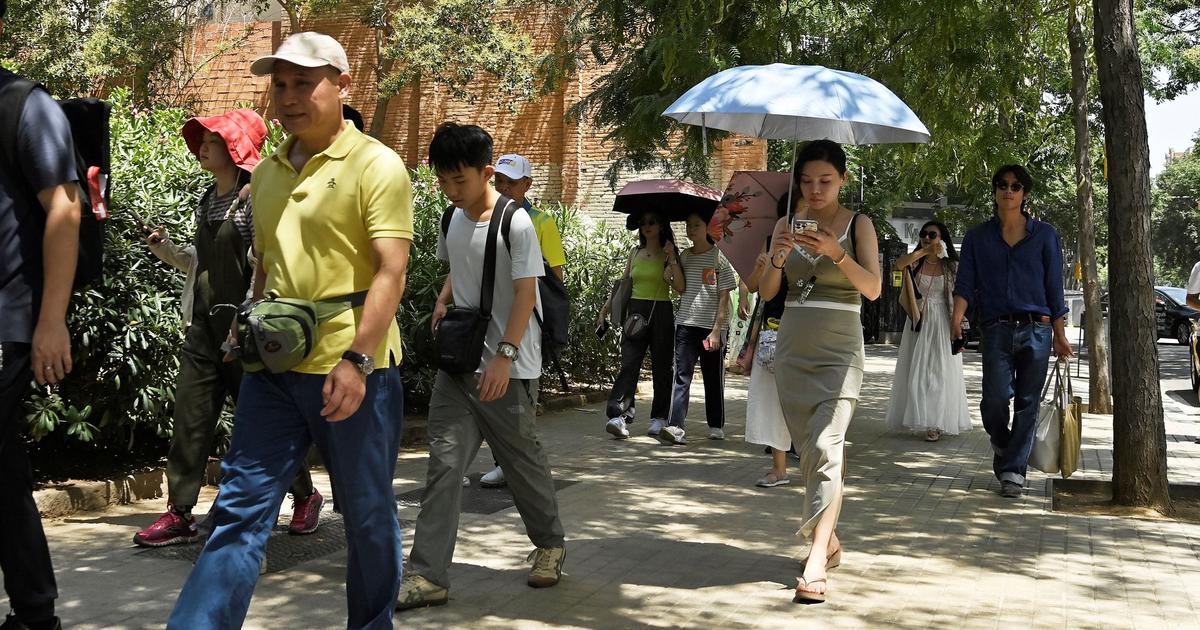"I know that I know many people whom I do not know." Gustavo Adolfo Bécquer spoke to us of the "fingers of the rose" of the dream, of the visions that that imagined world left in our heads left at night. In 2020, 150 years after the death of the Sevillian poet, and in the uncertainty of a moment when it seems that through the screens we can meet those we do not know, Bécquer's verses could be paraphrased as "I think I know people I don't really know. " And in that phrase we would see that phenomenon so prevalent in today's Spanish for which we use the singular who to refer to a group that is plural (people). Such use, condemned by the Spanish norm, occurs because the plural who is a relatively new word in our language, not as widespread as it would seem to us in view of its current use.
It is striking to see how words that are part of our grammar and our everyday language were not used in Old Castilian. Who is one of them. The first Castilian texts used who as a relative pronoun, but the origin of this pronoun (from the Latin quem , singular) caused the form who to be used both to refer to one person and to refer to several: “Well-born men to whom you are Sciences are infused ”, said the Marquis of Santillana. The plural who is created in the late Middle Ages: is already in some manuscripts of the XV, but not before. When we hear a character say who in a movie or novel with a medieval historical setting, we must be suspicious. Such a plural was not generalized in our language until the 17th century. Surely in its origin it was a plural considered as rare and vulgar (as if we were saying someone today ) and, although it has ended up spreading, the possibility that we still use someone in the singular to refer to a plural antecedent has not been erased.
Another of those words that the first Spanish speakers did not know was someone. Medieval Castilian lacked such a pronoun: if our ancestors wanted to refer indefinitely to a person, they spoke of someone (" when someone comes, another reason we change ", Book of good love ) or they said, in circumlocution, someone. Someone is the Castilian copy of the alguem and someone forms that were used in Galician, Portuguese and Asturian, respectively. It was not until the 15th century that this pronoun was introduced in Spanish, and when it did, it was in the form of someone's acute accentuation . Influenced by something that did exist in Spanish, someone became someone and stayed in our grammar forever.
A third case of striking absence is that of the personal pronouns us and you. Medieval Castilian Spanish used to say us and you ("they are our servants, we are their lords", Alexandre's Book ) but from the 14th century onwards, we and you began to spread the variants, which did not become generalized in Spanish until the 16th. Others was originally a reinforcement of us and you, similar to that used in today's English, which emphasizes its plural you with you all or you people .
If we read a medieval text, we come across words that we do not understand, either because they name realities that have already been lost or because we have ended up replacing them with new words. But, in addition to those voices that have disappeared forever, today's reader perceives that Castilian from another time, even being understandable, has a different aroma than today. This occurs largely because words of great use within our modern grammar were lacking in the language of the past, which used others instead.
Now, that our ancestors communicated without having words that are fundamental for us today cannot make us think that the speakers of another time spoke with greater difficulty or imprecision than we did. Our forms have replaced theirs and their speeches were as competent or effective as ours can be today. We don't know our speakers from centuries ago, only the texts represent them. Reading those old books is a way, not dreamed and yes real, of knowing those who we do not know.
East wind, west wind
Words of grammar such as who, someone or you show us that Spanish today is not only and exclusively the inheritance of Castilian Castilian years. Someone came from the west, we and you were pronouns pushed by the influence of Catalan and Aragonese: still at the beginning of the 16th century, Sevillians said us and you, while Aragonese and La Mancha said us and you. Who, in the singular, swept in the Middle Ages from the west to the relative form that was used in the center and east of the peninsula: who. The theory that Spanish is a sum of axes of influences was the main theme of the admission speech at the Royal Spanish Academy of Inés Fernández-Ordóñez in 2010 (available here). Winds from the north to the south, from the south to the north, from the lateral strips towards the centers and from the center to the periphery allow us to verify that, at least as regards languages, our ancestors were also in contact and subject to influences several, without the need for the planes or screens that today seem essential to connect.
* You can also follow us on Instagram and Flipboard. Don't miss the best of Verne!









